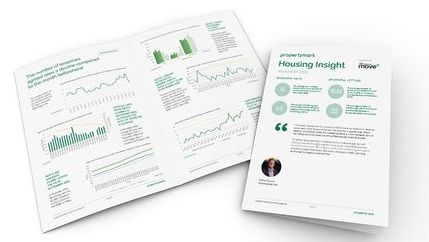Self-Assessment deadline looms and Making Tax Digital changes approach
Many self-employed property agents and landlords are accustomed to submitting a Self-Assessment tax return annually. However, as the tax and regulatory landscape becomes increasingly complex, the risk of mistakes or missed deadlines could grow, particularly for landlords with small portfolios who must juggle compliance alongside day-to-day responsibilities.
Protecting long-term housing supply requires broader focus than holiday lets
Propertymark has provided the Welsh Government with clear evidence on how short-term and holiday lets affect housing supply, communities and the work of property agents in response to the latest plans for the regulation of self-catering visitor accommodation.
Agent input is vital on proposals to reshape enforcement of housing offences
The Sentencing Council has launched a 12-week public consultation on new sentencing guidelines for housing offences, including unlawful eviction, unlawful harassment, Houses in Multiple Occupation (HMOs) and housing standards breaches. For property agents, the proposals underline the importance of compliance, record-keeping and professional standards and present a clear opportunity to influence how the guidance is shaped.
Housing insight report November 2025
Insight shows a market that remains resilient but measured, with steady new listings, slightly softer sales, and easing inflation, offering cautious optimism. While buyer conditions show signs of balance, demand in the rental market continues to outstrip supply, keeping affordability pressures firmly in focus.
National survey data reveals shift in landlord business models
The private rented sector (PRS) is being reshaped by changing motivations and new financial pressures, which help explain the structural changes behind shrinking stock levels, higher churn, and new expectations around compliance and profitability. For agents, these insights help develop and position services to effectively address the needs of their clients in a shifting market.
TPO raising consumer awareness of conditional selling
The Property Ombudsman (TPO) has issued new guidance in responding to growing concern about the prevalence of aggressive practices in the home-buying process, empowering buyers to recognise and challenge unfair practices. With complaints on the rise and increased scrutiny from redress schemes and Trading Standards, estate agents should take time to review their processes, staff training and messaging to ensure compliance.
Another Budget fails to address housing emergency
Despite a multi-year commitment to affordable housing supply and increased investment in acquisitions and homelessness prevention, it is surprising that the Scottish Government is yet again failing to tackle the housing emergency, and the Budget misses an important opportunity to address the growing tax burden on housing. At a time of acute housing pressure, Scotland needs policies that encourage mobility and investment across all tenures.
Trust qualification bursaries open until 31 January 2026
Following the success of the Class of 25 initiative, The Propertymark Trust has opened its 2026 bursary programme, offering vital financial support to individuals working towards industry qualifications. Promoting professionalism and supporting access to education for people who would otherwise struggle to meet the costs of training, membership and assessment sits at the heart of the Trust’s work.
Vital intel for property agents as Ofgem becomes heat networks regulator
Formal regulation marks a major shift in how these systems are overseen and how consumers are protected. For property agents, this change is important because it will affect how heat networks are operated, what information consumers must receive, and how agents advise clients and market properties connected to networks. Hundreds of thousands of homes, particularly in blocks of flats and new developments, are already connected, and their use is expected to grow as part of the UK’s decarbonisation plans.
Rent controls push a quarter of rural lets out of the market
Fresh analysis shows that there are fewer homes available in 14 Scottish local authority areas than in 2022, despite the introduction of rent control measures. Propertymark has consistently warned that restricting rents without tackling supply and costs can create unintended consequences for tenants, landlords and the agents supporting them.
Seven-month notice periods for long-term tenants
The Department for Communities (DfC) plans to extend notice- to-quit periods for tenants who live in homes for longer periods to provide greater stability; however, this goal must be balanced with a structured and predictable framework for letting agents and landlords.
What must change to make more home ownership dreams a reality
Head of Policy and Campaigns, Timothy Douglas, has followed up our written submission to the Housing, Communities and Local Government Committee inquiry into housing affordability with in-person evidence on 6 January 2026. Our evidence reinforces the need for a joined-up approach to affordability which considers housing supply, rental market pressures, financial products, taxation, and consumer costs together.
Funding boost for legal support as housing pressures persist
The UK Government has announced a multi-million-pound funding package to expand access to free legal advice for people in England facing eviction or home repossession. The investment aims to ensure more households can get early, practical legal support to help them stay in their homes or secure alternative accommodation where needed. This comes at a time when demand for housing advice remains high, with many households facing affordability pressures and uncertainty.
Government leasehold reform delay sparks new calls for action
In a major setback for long-awaited housing reform, the UK Government has failed to publish the draft Commonhold and Leasehold Reform Bill before the end of 2025 as repeatedly promised to Parliament — delaying crucial leasehold overhaul legislation until early 2026. The omission, confirmed in correspondence from Housing Minister Matthew Pennycook to the Housing, Communities and Local Government (HCLG) Committee, has drawn sharp criticism from MPs, campaigners and sector bodies alike.
Expanded crackdown on rogue landlords to protect taxpayers
The UK Government has announced that an expansion of its Rent Repayment Orders (RROs) pilot scheme will see the trial rolled out to 41 local authorities across England following early success in recovering public funds and deterring poor housing practice.
Mortgage review aims to boost home ownership and market growth
The Financial Conduct Authority (FCA) has confirmed a wide-ranging review of mortgage rules to support sustainable home ownership while ensuring standards of consumer protection remain high. The reform signals positive change on the horizon for first- and last-time buyers, self-employed people, and vulnerable customers, who may have experienced limited access to borrowing under the current rules.
















